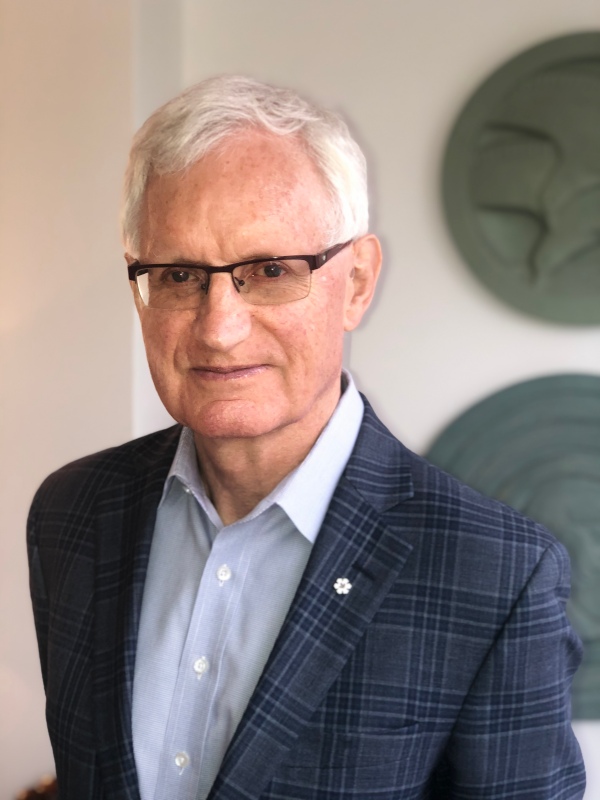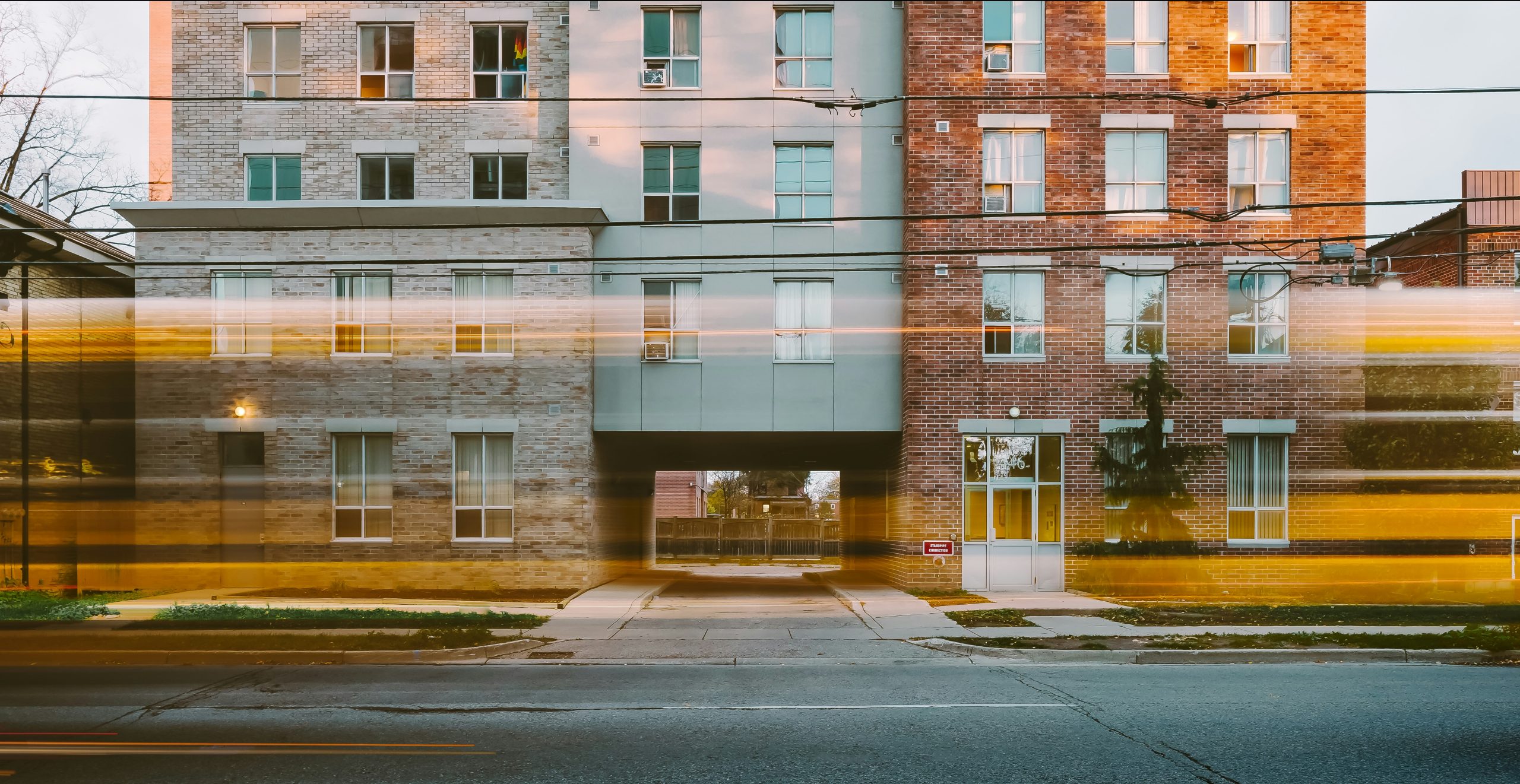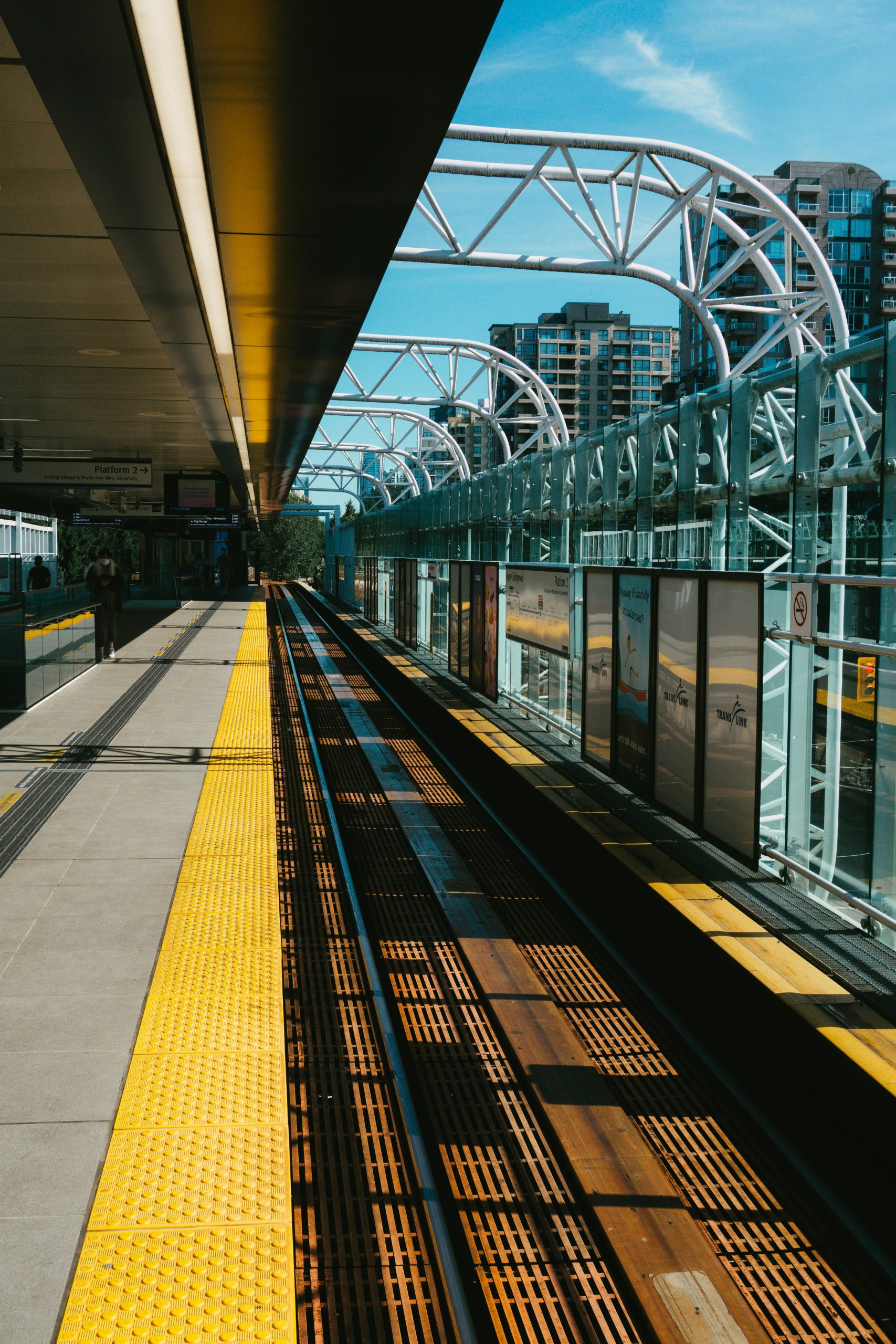Featured Guest
You’ll find this guest among our growing roll of Urban Champions.
-

John Godfrey
Founder, John Godfrey Climate Change Consulting
-

Amarjeet Sohi
Mayor of Edmonton
5 Key
Takeaways
A roundup of the most compelling ideas, themes and quotes from this candid conversation|
Additional Reading
& Resources
1. Appetite for post-COVID-19 intergovernmental collaboration
In the recovery phase, the lessons we are learning from COVID-19 highlight the importance of and opportunities for greater intergovernmental collaboration. Creative collaboration between levels of government is critical, and meaningful open discussions are needed on how to rebuild going forward. “There is cooperation and collaboration, and a willingness [of governments] to work together to find solutions,” noted one of the panelists.
2. Filling the gaps
As cities recover, there is a need to consider future investments that mitigate gaps in physical infrastructure of cities, such as expanding high-speed internet access, green conditions in stimulus packages, and retrofitting apartment neighbourhoods.
3. Autonomy through trust
COVID-19 has shown the opportunities and limitations of municipal responses in a federalist system. The panelists agreed that cities need more autonomy, as well as a federal Minister of Urban Affairs, who functions as an intergovernmental facilitator to tackle wicked problems collectively. However, long-term intergovernmental collaboration requires the building of trust between the three levels of government, and a trust that survives political regimes.
4. Human-centric recovery
Recovery post-COVID-19 must take a human-centric approach, as cities are composed of people and are made vibrant by interpersonal relationships and networks. People must be part of the process of rebuilding, especially through investments in social infrastructure that contribute to the long-term sustainability of communities. Questions about housing and the need for secure housing should be front and centre, and alternative land-uses for existing sites in cities should be considered in the rebuilding effort.
5. Transit post-COVID-19
The role of transit post-COVID-19 will require support from all levels of government. While transit is critical to mitigating climate change and the path to decarbonization, the perception of mass transit will change after COVID-19. The panellists noted that we must not lose sight of the long-term benefits of transit, and consider now to be the time to think about transit innovations like electrification. We must use the crisis as a catalyst to imagine the future of mobility so that we do not go back to unsustainable patterns of land-use.
|
The Rise and Fall of the Ministry of State for Urban Affairs: Exploring the Nature of Federal-Urban Engagement in Canada, Zac Devon Spicer, Canadian Political Science Review
Lessons from a Crisis, Lessons for a Crisis, Alex Spiegel, Canadian Architect
Full Panel
Transcript
Note to readers: This video session was transcribed using auto-transcribing software. Manual editing was undertaken in an effort to improve readability and clarity. Questions or concerns with the transcription can be directed to events@canurb.org with “transcription” in the subject line.
Full Audience
Chatroom Transcript
Note to reader: Chat comments have been edited for ease of readability. The text has not been edited for spelling or grammar. For questions or concerns, please contact events@canurb.org with “Chat Comments” in the subject line.
12:02:13 From Andre Darmanin: Hello from Vaughan ON. Happy Kawhi’s The Shot Day.
12:02:53 From Canadian Urban Institute: CUI is looking for volunteers to help us continue the great work of our COVID-19 initiatives. If you can help, please contact us at covidresponse@canurb.org
12:05:44 From Canadian Urban Institute: Folks, please change your chat settings to “all panelists and attendees” so everyone can see your comments.
12:05:47 From Andre Darmanin: Hi Amarjeet.
12:06:04 From Canadian Urban Institute: You can find transcripts and recordings of today’s and all our webinars at
https://canurb.org/citytalk
12:06:21 From Gurpreet Patheja: Looking forward to this discussion.
12:06:29 From Canadian Urban Institute: Keep the conversation going #citytalk
12:07:40 From Robert Godfrey: Hi Johnny! #proudnephew
12:08:07 From Emily Wall, CUI Staff: Today’s panel:
John Godfrey – https://ca.linkedin.com/in/the-honourable-john-godfrey-p-c-d-phil-5ba03121
Amarjeet Sohi – https://twitter.com/SohiAmarjeet
Home
12:09:20 From Kathleen Godfrey to All panelists: Hey, I’m here too! Hi Johnny! #proudniece
12:09:21 From paul mackinnon: I’d love to ask about thoughts regarding a Federal Ministry of Urban Affairs (as existed in the 1970s). Would this be a more efficient way to tackle complex urban issues?
12:13:04 From Andre Darmanin: I would like to ask about the federal role for municipalities. As Amarjeet is a transit guy from our time in Edmonton, FCM on behave of municipalities have been asking for an injection. Transit ridership is declining and there is a need for affordable housing. Why the lack of a federal response and will the Feds come around? Will this also be an opportunity to look at a more significant role for munis?
12:13:09 From Michael Roschlau: The federal government has refused to commit to any emergency financial support for public transit so far – and neither have any provinces except for BC. It seems to be a real squeeze play for transit, which is an essential service and has lost most of its fare revenue. What is your advice in resolving these issues to avoid a total public transit collapse?
12:13:23 From Andre Darmanin: @Michael. We asked the same question.
12:14:19 From Michael Roschlau: Concerned minds think alike!
12:15:55 From Lauren Millier to All panelists: do we need an infrastructure fund again?
12:16:18 From Andre Darmanin: But also gas taxes have been diminished due to gas prices diminishing, even before COVID.
12:16:43 From Andre Darmanin: Ok that didn’t sound right, but you know what I mean:)
12:16:59 From gail krantzberg: with deep relectance for citizens to return to transit, how can we expect public transist to be resilient? what would get me back on a bus?
12:18:10 From Gurpreet Patheja: To echo Michael’s concerns on public transit. What is happening with transit is a bigger discussion on, will we come out of COVID19 with a greater loss of public owned essential services, and public commons?
12:18:22 From Gloria Venczel: A new “green deal” for cities? Canadian taxation system developed in 1867 when there no cities, with only minor updates since then. Cities are the economic powerhouses of Canada- we are no longer an agrarian society.
12:18:33 From Lorne Cutler: If Federal and provincial governments are so concerned about funding for municipal governments, why don’t higher levels of government actually pay property taxes instead of setting payments in lieu of taxes which are difficult to challenge. That being said, when the Federal government has been challenged in court over PILT (Halifax, Montreal), they lost both court cases.
12:18:39 From Andre Darmanin: 100% Gloria.
12:18:47 From Michael Roschlau: European and Asian countries have been requiring face coverings on transit. That seems to be the only approach that allows for physical distancing to be removed and transit capacity to be recovered. Unfortunately, Canadian jurisdictions are very reluctant to make such a move.
12:19:44 From Eva Chu: Speaking of social cohesion, what are some solutions to addressing the existing and arising racism COVID has exacerbated?
12:21:21 From Michael Roschlau: Ultimately, we may need to rethink the balance between user fees and society’s financial support for transit. We suffer in comparison to other countries because we rely so heavily on fares.
12:22:15 From Sean Gadon to All panelists: Having a transit system like in Toronto where 80% of the revenue comes from transit riders is going forward financially unsustainable – governments are going to have to step up and structurally change the funding model!
12:22:27 From Andre Darmanin: @eva It first starts with understanding who is riding transit, their jobs, and where they are coming from. Only Toronto and Manitoba will be collecting sociodemographic data. Municipalities have been reluctant to collect this data for years. Now it takes COVID to do it? I tried to do this in Edmonton but was shot down by ETS leaders for transit ridership (ahem, Amarjeet).
12:23:28 From Paul Bedford: This seems like a perfect time to embrace road pricing, a share of income and sales taxes for cities.
12:23:49 From Andre Darmanin: Preaching to the choir @Paul.:)
12:24:06 From Michael Roschlau: Eventually, taxes will need to go up to repay our massive new debts. GST and property taxes are likely candidates, but road pricing also needs to be put on the table.
12:24:45 From Gloria Venczel: We cannot recover from covid without economic equity as inequity is a statistically significant indicator of pandemic spread, without incurring wave after wave of infections. The post-covid city, rethinking cities, where more work from home, with supporting neighbourhood hub based economic drivers, is very likely a climate change friendly one.
12:26:52 From Andre Darmanin: Ok but when is the right time to charge for road pricing. Property taxes will rise. Income Taxes will rise. So how to soften the blow? Road pricing must be put on the table.
12:26:57 From Lorne Cutler: In all previous recessions that didn’t involve deliberately shutting down the economy, including 2008/2009 provincial and federal governments that rely on income and sales tax were deeply in the hole. Municipalities which rely primarily on property tax didn’t see drops in revenue. Why doesn’t anyone talk about the volatility of other tax sources. While reality taxes may be limiting they are highly predictable and seldom vary from year to year.
12:27:06 From Charles Crenna: The key issue is comparative effectiveness of different kinds of programs and expenditures… Hard to make a case for just more money…
12:27:07 From Michael Roschlau: With recovery, there is a real danger of increased traffic congestion resulting from people considering their cars as the only safe way to travel more than a few km. Again, we need to give people a greater sense of confidence in returning to public transit. Back to required face coverings.
12:27:20 From paul mackinnon: Do we see a positive benefit of this that urban housing prices will go down (on a real basis)?
12:27:21 From Steve Winkelman to All panelists: We’re in trouble on mass transit. Millions rely upon it and will be afraid ot return. That’s likely to lead to terrible traffic congestion and increased GHG emissions. How can transit be rescued — including by increasing space for pedestrians and cyclists?
12:27:43 From Eva Chu: I’m all for diversified revenue for cities, but the problem with road pricing is it’d target too many of the wrong people. Many of the people would have to pay the road tax would be people who’ve been priced out of living in city centres
12:28:05 From Andre Darmanin: @Paul M The National Housing Strategy and its funding that’s tied to it needs a massive rethink.
12:28:39 From Andre Darmanin: @eva There needs to be an equitable approach. More than likely it will look like New York’s cordon pricing plan.
12:29:32 From Emily Wall, CUI Staff: Please help CUI improve its CityTalk programming with a short post-webinar survey – https://bit.ly/2xW5maF
12:30:02 From Andre Darmanin: First we need to call it climate crisis. It still is one, even with the air cleaning.
12:31:13 From Michael Roschlau: Under COVID-19, transit can only be efficient if everyone wears face coverings.
12:31:41 From Lauren Millier to All panelists: what have cities done / will they do try and increase the ridership? how are places likely Sweden dealing with this? they’ve never shut down.
12:31:45 From Samira Farahani to All panelists: how come we dont consider weather in proposing transportation systems. how we could have efefctive transit servie and active transporation systems with our climate of 0 degree temperature in May!
12:31:55 From Andre Darmanin: Forget the gas tax.
12:32:04 From Eva Chu: Besides masks, there NEEDS to be contact tracing.
12:32:29 From Lidia Monaco to All panelists: How about Parking taxes
12:32:41 From Samira Farahani: how come we dont consider weather in proposing transportation systems. how we could have efefctive transit servie and active transporation systems with our climate of 0 degree temperature in May!
12:33:34 From Lorne Cutler to All panelists: What politician can drop a tax after introducing. A variable gas tax will likely only work in one direction.
12:34:19 From Andre Darmanin: I’m echoing what Paul Bedford is saying. Gas tax revenues has been depreciating on both sides of the border. We need to look at alternative options, including equitable cordon pricing/road pricing. Even reviewing the carbon tax.
12:34:28 From Michael Roschlau: The ask of the feds is for temporary, emergency transit operating funding, which should be a 50-50 fed-prov match. That would need to be negotiated, which takes t-I-m-e.
12:34:29 From Canadian Urban Institute: Just a reminder to please change your chat settings to “all panelists and attendees” so everyone can see your comments.
12:35:01 From Amy Calder: there are lots of people who do not own personal vehicles, my choice and otherwise, so I think it’s important to consider that in a lot of cases that is the only transportation option for people. Especially in certain weather conditions and seasons,
12:35:20 From Lidia Monaco to All panelists: the need for all of to get to work, public transit must be expanded not diminished and transit is an equalizer fo all
12:35:32 From Amy Calder: biking is nice, but we also have huge commute distances that preclude bike commuting in some cases
12:36:00 From Andre Darmanin: Agreed @michael
12:36:37 From Gloria Venczel: Neighbourhood based, integrated economic hubs, diversifying the suburbs around pre-amalgamation Toronto and transforming them into walkable, multi-modal communities would be an effective strategy against future covid spread and commuter car pollution GHG emissions.
12:36:49 From Sean Gadon: Federal government should lead in championing a new deal for cities within the federation! The working going forward should not be piecemeal and incremental.
12:36:49 From Robert Godfrey: Let’s talk about opportunity. In a post-COVID world, what is possible that wasn’t previously? How *do* we build back better? What about reinvention rather than a reset?
12:37:00 From Lorne Cutler to All panelists: People drive a country’s economy. Cities facilitate it.
12:37:00 From Steve Winkelman to All panelists: Yes – transit is key to social and economic equity and resilience. We need walkable 15-minute communities. Land use planning is key here.
12:37:22 From paul mackinnon: We may see a *brief* (2-year?) pause in bus/metro ridership, but we need to not lose sight of the long term move to mass transit that is actually needed to fight climate issues. Let’s not let short term impacts take us off course.
12:37:27 From Andre Darmanin: @Robert what does “reinvention” look like?
12:38:18 From Andre Darmanin: Yes @sean. There has to be a new deal for cities including removing/modifying Section 92.
12:38:43 From Lauren Millier to All panelists: in low income neighbourhoods access to internet is a problem because of cost – still an infrastructure issue
12:39:59 From paul mackinnon: We had an opportunity to rebuild our carbon-based society after the ’08 crash. This is a second ‘opportunity’ where structural societal change seems possible. This needs to be part of the thinking behind the new deal.
12:40:06 From Robert Godfrey: @Andre, a bit vague I realize. I’m interested in how we don’t simply return to normal. How can this moment provide the impetus to tackle longstanding challenges (affordable housing, climate change adaptation and mitigation, more robust transit system)? Could use some hope
12:40:07 From Andy Fillmore: Perhaps the panellists would share their thoughts on this fascinating idea of a New Deal for cities.
12:40:56 From Lorne Cutler to All panelists: Considering the Liberals didn’t win one seat in Alberta, including in the Edmonton and Calgary, Albertans are fairly united in recognizing the importance of the oil and gas sector to their economy and to Canada’s exports and government revenue.
12:41:23 From Andre Darmanin: C’mon Andy. You’re the planner. I’m sure you know what it should look like.
12:41:32 From Lauren Millier to All panelists: and yet we continue to plan for greenfield employment areas…
12:41:52 From Canadian Urban Institute: Just a reminder to please change your chat settings to “all panelists and attendees” so everyone can see your comments.
12:42:16 From Andy Fillmore: Haha, yes Andre, but I don’t have a microphone!
12:42:43 From Lorne Cutler: If you destroy the Albertan economy there will be no money to retrofit buildings.
12:42:52 From Elliott Cappell: how about advancing Tower Renewal nationally!
12:42:55 From Andre Darmanin: @robert. Ok. yes. From Government programs to admin. We can’t go back to the status quo.
12:43:40 From Sean Gadon: Shopping malls will be the next urban white elephants! Need to look at how city planning polices can be more flexible to permit a variety of uses than what would presently be permitted! Are our shopping malls our next community hubs or converted to much needed housing!
12:44:24 From Charles Crenna: Excellent point on the malls, Sean! Have to focus on that!
12:44:36 From Robert Godfrey: @Andre, yes. And what becomes politically palatable and possible that wasn’t before?
12:45:10 From Canadian Urban Institute: CUI is looking for volunteers to help us continue the great work of our COVID-19 initiatives. If you can help, please contact us at covidresponse@canurb.org
12:45:12 From Lauren Millier to All panelists: what about old industrial parks?? we started talking job creation, this has to be park of the discussion
12:45:24 From Andre Darmanin: Parking lots, save for Metrolinx continuing to build them, and parking lots need to opportunities for housing.
12:45:26 From Allyson Hewitt: Surely more than three way, we need to engage corporates and nonprofits and academics – cross-sectoral collaboration (and space for these tough conversations) needs to be supported and enabled
12:45:26 From paul mackinnon: I think the New Deal needs to open up new Fed $$ directly to cities (bypassing provinces if possible), but has to direct those funds to projects that are urbanism-centric (and cities can take it or leave it
12:46:07 From Steve Winkelman to All panelists: We need to combine building energy efficiency and location/travel efficiency. Strengthen the core of cities. Foster walkable, 15-minute neighbourhoods.
12:46:17 From Michael Roschlau: Direct to cities will never work in Quebec.
12:46:21 From paul mackinnon: I should say bypassing provinces who don’t buy-in. They traditionally have resisted a direct relationship between Feds and cities.
12:47:24 From Michael Roschlau: Let’s not forget the federal Ministry of Infrastructure is also of COMMUNITIES
12:48:25 From Andre Darmanin: If we’re talking about electrification, then high speed rail needs to be on the table.
12:49:07 From Emily Wall, CUI Staff: Please help CUI improve its CityTalk programming with a short post-webinar survey – https://bit.ly/2xW5maF
12:49:33 From Andre Darmanin: Especially since intercity airline travel will be challenging, regardless of wearing face coverings or not.
12:51:18 From Christine Drimmie: The multiparty conversation on funding to municipal infrastructure projects may work in an ideal world, but in reality my municipality’s ICIP projects have been hung up in the 3 way conversation since 2016. Not a dollar has flowed.
12:51:20 From Chris Fraser to All panelists: I think electrification of transit is a great idea. But being innovative I think we need to look at use of hydrogen for buses and trains especially with Alstom’s recent purchase of Bombardier’s train assets and the incredible costs of replacing bridges across lines like the Lakeshore lines.
12:51:23 From Maureen Shuell: Excellent moderating Mary. Good to see engagement with former federal cabinet ministers who understand complexities of leadership. Hello again John Godfrey and Amarjeet Sohit. Good to see you here and thank you for your insights.
12:51:25 From paul mackinnon: Good point Michael R. In the US, cities tends to work directly with HUD. Maybe Infrastructure + Communities is THE urban ministry. It’s just as John Godfrey says, city challenges tend to be so complex – beyond infradtruture.
12:51:35 From Michael Roschlau: Perhaps the “cities” portfolio is better aligned with Intergovernmental Affairs.
12:51:35 From Alex Speigel: I strongly believe that we must use this transformative event to plan for a greener future, and that “we” includes governments, businesses, communities and individuals. You may be interested in this article: https://www.google.com/url?sa=t&rct=j&q=&esrc=s&source=web&cd=1&cad=rja&uact=8&ved=2ahUKEwjSrvq24q7pAhW9oHIEHU18A8EQFjAAegQIARAB&url=https%3A%2F%2Fwww.canadianarchitect.com%2Flessons-from-a-crisis-lessons-for-a-crisis%2F&usg=AOvVaw3j5AaQJT1V_CswN5eZesHV
12:51:46 From Canadian Urban Institute: You can find transcripts and recordings of today’s and all our webinars at
https://canurb.org/citytalk
12:51:57 From Steve Winkelman to All panelists: Accessory Dwelling Units are key to increasing affordable housing and walkable, transit-oriented development. The Federal government and CMHC can provide techncial and financial assistance to advance this important approach that brings great social, economic and environmetnal benefits.
12:51:59 From paul mackinnon: Andy Fillmore has my vote as new Minister for Cities!
12:52:37 From Lauren Millier to All panelists: Could the big cities mayors group play a role in advancing this discussion of ‘cities agenda’? they’ve been a pretty cohesive group for a while.
12:53:14 From paul mackinnon: “The Rise and Fall of the Ministry of Urban Affairs”. Fascinating read: file:///C:/Users/Boardroom/Downloads/149-1303-1-PB%20(1).pdf
12:53:30 From Zamir Rahemtulla to All panelists: With Sidwalk labs pulling out in Quayside, what is the future of Canada and smart cities post-COVID?
12:54:08 From Charles Crenna to All panelists: Great points about starting small on trust-building!
12:54:46 From Andre Darmanin: I don’t know how a tripartite agreement could occur when you have Brad Wall and Jason Kenney at the table.
12:56:11 From Canadian Urban Institute:
Keep the conversation going #citytalk
12:56:13 From Charles Crenna: If they and others like them are not on board, this kind of institution is very unlikely to last long,,,
12:57:47 From Lisa Cavicchia, CUI Staff: Correct link to The Rise and Fall of the Ministry of State for Urban Affairs: Exploring the Nature of Federal-Urban Engagement in Canada is https://ojs.unbc.ca/index.php/cpsr/article/view/149
12:58:11 From Andre Darmanin: As I’ve been doing on other webinars, add me on LinkedIn https://ca.linkedin.com/in/andredarmanin
12:58:55 From Andre Darmanin: Let’s keep the conversation going.:)
12:59:11 From paul mackinnon: Thanks Lisa.
12:59:13 From Andre Darmanin: And add me on Twitter @andredarmanin
12:59:27 From Sean Gadon: Agreed – recovery and a better future requires strong cities – need to build the coalition of players to achieve this objective! Well done CIU!
12:59:37 From Steve Winkelman to All panelists: On building retrofits, check out Ralph Torrie and Celine Bak’s compelling proposal to Build Back Better: https://www.corporateknights.com/voices/ralph-torrie-and-celine-bak/recovering-stronger-building-low-carbon-future-green-renovation-wave-15875463/
13:00:01 From Emily Wall, CUI Staff: Please help CUI improve its CityTalk programming with a short post-webinar survey – https://bit.ly/2xW5maF
13:00:01 From Andy Fillmore to All panelists: Thank you John and Amarjeet. Great to see you both again!
13:00:39 From Mike Abraham to All panelists: Thank you for organizing this discussion CUI.
13:00:41 From Andre Darmanin: Thanks for putting this together CUI. I enjoyed this one like the one last week. Tomorrow’s will be fun with Jay and Roger.



